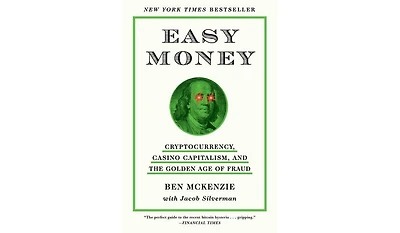Home
Charlemagne, Muhammad, and the Arab Roots of Capitalism
Barnes and Noble
Loading Inventory...
Charlemagne, Muhammad, and the Arab Roots of Capitalism in Franklin, TN
Current price: $260.00

Barnes and Noble
Charlemagne, Muhammad, and the Arab Roots of Capitalism in Franklin, TN
Current price: $260.00
Loading Inventory...
Size: OS
Presented in six principal analytic chapters with supporting appendices, this book explores the role of Islam in precipitating Europe’s twelfth century commercial renaissance. Employing the classic analytic techniques of economics, Gene Heck determines that medieval Europe’s feudal interregnum was largely caused by indigenous governmental business regulation and not by shifts in international trade patterns. He then proceeds by demonstrating how Islamic economic precepts provided the ideological rationales that empowered medieval Europe to escape its three-centuries-long experiment in “Dark Age economics” ― in the process, providing the West with its archetypic tools of capitalism. While treatises such as Maxime Rodinson’s excellent book,
Islam and Capitalism
, document the capitalistic nature of the Islamic economic system, in applying modern economic method to medieval orientalist historiography, this work is unique in capturing both the evolution and the impact of the system’s role in forging medieval history.
Islam and Capitalism
, document the capitalistic nature of the Islamic economic system, in applying modern economic method to medieval orientalist historiography, this work is unique in capturing both the evolution and the impact of the system’s role in forging medieval history.
Presented in six principal analytic chapters with supporting appendices, this book explores the role of Islam in precipitating Europe’s twelfth century commercial renaissance. Employing the classic analytic techniques of economics, Gene Heck determines that medieval Europe’s feudal interregnum was largely caused by indigenous governmental business regulation and not by shifts in international trade patterns. He then proceeds by demonstrating how Islamic economic precepts provided the ideological rationales that empowered medieval Europe to escape its three-centuries-long experiment in “Dark Age economics” ― in the process, providing the West with its archetypic tools of capitalism. While treatises such as Maxime Rodinson’s excellent book,
Islam and Capitalism
, document the capitalistic nature of the Islamic economic system, in applying modern economic method to medieval orientalist historiography, this work is unique in capturing both the evolution and the impact of the system’s role in forging medieval history.
Islam and Capitalism
, document the capitalistic nature of the Islamic economic system, in applying modern economic method to medieval orientalist historiography, this work is unique in capturing both the evolution and the impact of the system’s role in forging medieval history.

















